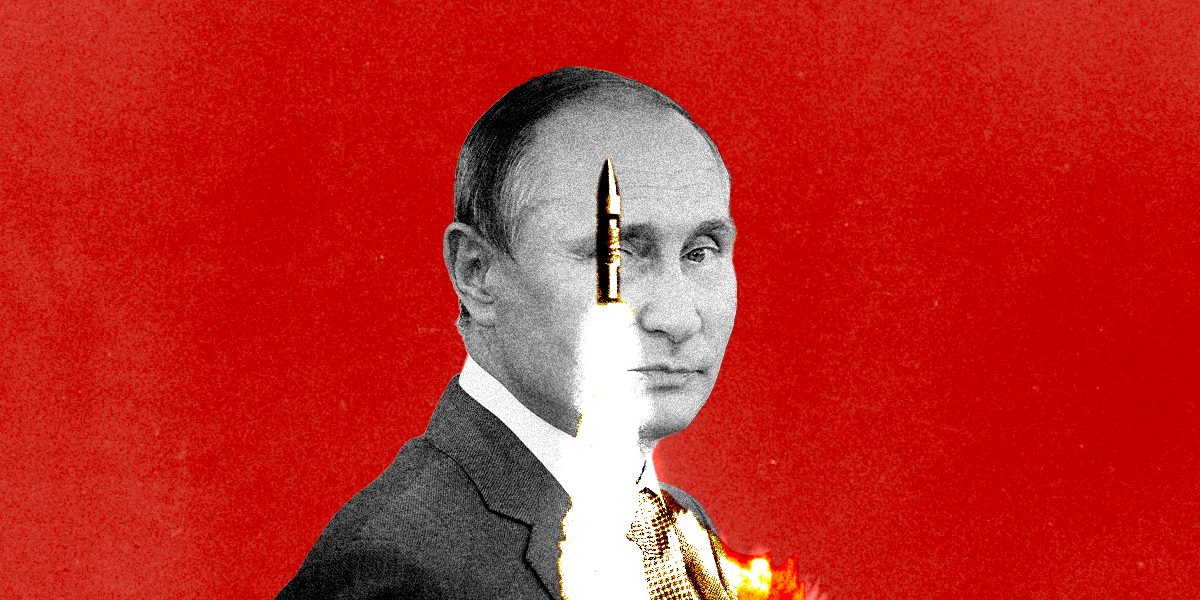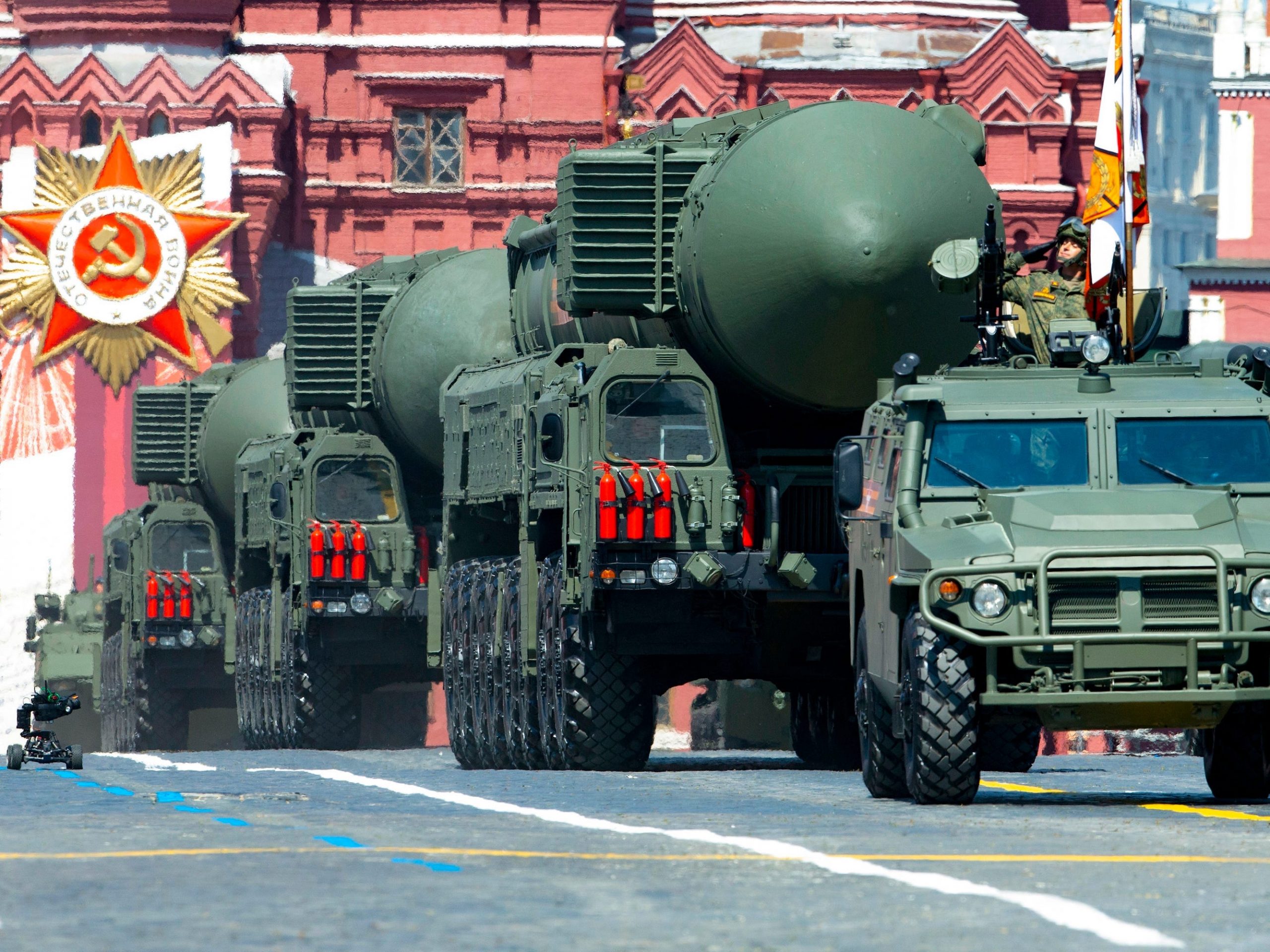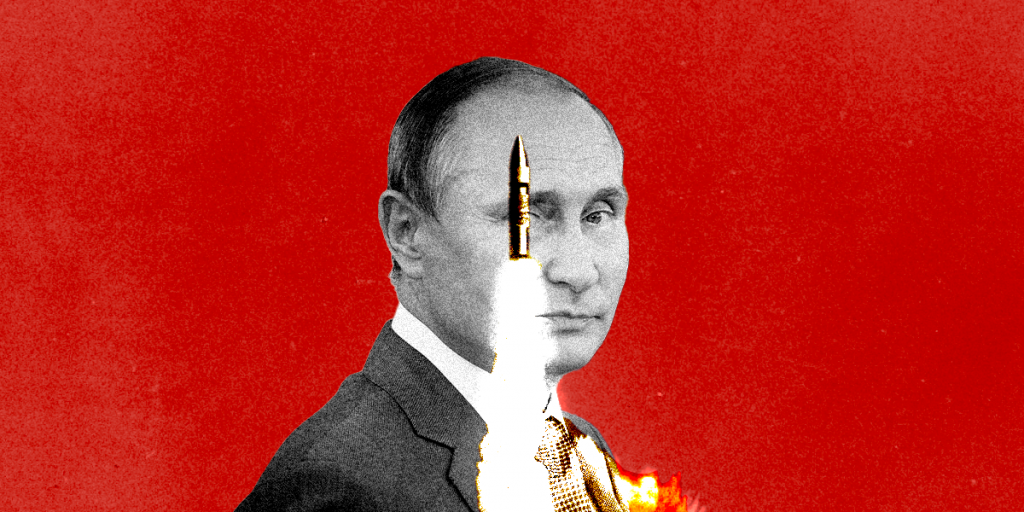
During the first few days after Vladimir Putin decided to invade Ukraine, the images from the conflict were both urgent and remote. For Americans, the violence felt heartbreaking and the diplomatic choices seemed complex. But the fighting was taking place on a faraway continent, and the consequences appeared to be equally removed.
Then, on Sunday, Putin shattered the complacency of Westerners who believed they were a safe distance from the battlefield. He ordered Russian nuclear forces to shift to a higher state of alert he called "special combat readiness." While the Biden administration downplayed the announcement and declined to respond in kind, the implications of Putin's move were serious. He had already warned, on the day of the invasion, that anyone who stood in Russia's way would face "consequences … such as you have never seen in your entire history." Now he was ordering his military to ratchet up the force posture on Russia's arsenal of 6,000 nuclear warheads — a small but significant step towards initiating a global thermonuclear war.
Biden was right to treat Putin's threat as a bluff. To do otherwise would have played into Putin's hands, enabling him to recast his aggression towards Ukraine as part of a larger civilizational conflict with the West. And it's important not to overstate the practical significance of Putin's decision to put his nukes on a higher alert. It likely amounts to Russia disengaging one part of the safety on its nuclear gun, which is not the same thing as preparing to pull the trigger. "In the bizarre world of nuclear strategy," says Pavel Podvig, a Geneva-based analyst who studies Russia's nuclear posture, "removing some of your safeties can make you feel safer." But the move is still a crucial one — not because it brings the world to the brink of nuclear destruction, but because it's part of a new Russian military doctrine that lowers the threshold for nuclear engagement.
The likelihood that Putin would decide to launch long-range nuclear weapons at the US or any other NATO member is still perceived to be almost nil, a threat as hollow as the "fire and fury" that Donald Trump threatened to rain down on Kim Jong-Un. On Monday, when asked if Americans should be worried about nuclear war with Russia, Biden replied with an emphatic "no." The doctrine of mutually-assured destruction, created during the Cold War, is supposed to guarantee that such an action would mean the end not only of Putin's rule, but of life on earth as we know it. That's why both Russia and America have traditionally avoided any mention of their nuclear arsenals. Everybody knew they were there, but threatening to deploy them was long considered to be off-limits.

But among the specialists who study Russia's nuclear arsenal, there has been a long-running debate about another scenario — the possibility that Russian forces might use so-called "tactical" nuclear weapons, which have shorter ranges and smaller explosive yields, to seize a battlefield advantage, especially in conflicts they are losing. This new doctrine, in Strangelovian fashion, is known as "escalate to deescalate" or "E2D." It started in 2014, when an official Kremlin document raised the possibility of a nuclear reprisal to a conventional strike if "the existence of the state itself is threatened." The following year, Putin said that he had considered putting Russian nuclear weapons on alert to protect ethnic Russians in Crimea, which was annexed by Russia in violation of international law. In 2018, Trump's national security team thought that E2D was a serious enough threat to warrant mention in the Nuclear Posture Review. That document predicts a scenario where "limited first use" of tactical nuclear weapons "could paralyze the United States and thereby end a conflict on terms favorable to Russia."
In an interview with Insider, General James Clapper, the former intelligence chief, said he agrees with the assessment that the Russian military now views itself as having a lower threshold for the use of tactical nuclear weapons. "The Russians were driven to this," he told me, "because the current Russian Army is, comparatively, a shadow of the Soviet Army." If your traditional military is weak, in other words, tactical nuclear weapons offer a major form of compensation.
Podvig, the Swiss analyst, said he considers even a tactical nuclear strike to have "very low probability." He notes that "it would not help the Russian military achieve any of its goals, and the political consequences would be orders of magnitude worse than what we're seeing now." And even if Putin orders a nuclear strike, history suggests, it's possible that his own military might refuse to comply. The Soviet Union came close to launching two nuclear strikes that were halted at the eleventh hour by individual officers — Vasili Arkhipov during the Cuban Missile Crisis of 1962, and Stanislav Petrov after a military computer falsely warned of a US strike in 1983.
But it's hard not to take the current threat seriously when one considers the person who is making it. Putin is an increasingly isolated autocrat, a few days into a difficult war, whose own diplomats are reportedly apologizing for his actions behind closed doors. The first days of the unprovoked invasion have gone badly: Russian casualties are already approaching 5,000, a figure that surpasses what the US sustained during its decade-long campaign in Afghanistan. The Russian military has also been suffering on the information front. Charismatic videos shot by Ukrainian President Volodymyr Zelenskyy have helped galvanize commitments for weaponry and stiffer sanctions from Germany and other NATO allies. It's too soon to say how much of the Russian public is ready to turn on Putin, but many have acknowledged the possibility that a perceived threat to his ongoing rule could cause him to overreact.
"I don't think he's a rational actor," General H.R. McMaster, the former national security adviser, said on Face the Nation. "He's driven by a desire to remain in power until at least 2036. I think now he knows that all of that is at risk."
Clapper agreed that Putin appears to be increasingly volatile. "He was always hard, cold, disciplined, almost machine-like," Clapper told me. "Now his anger — fury — show. His meandering, incoherent rants are illogical and scary. He has no one who can push back and disagree with him." A tactical nuclear strike, he added, could offer Putin a way out of a situation that is starting to look increasingly untenable.
"It is a risk, or at least more of a risk than it was a week ago," Clapper said. "The fact that we are even having such a discussion is reflective of the realization that yes, Putin might do the unthinkable."
